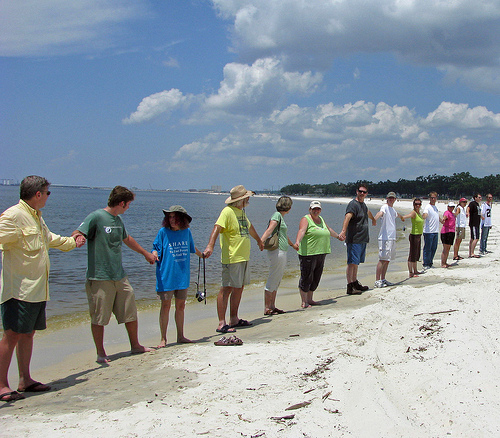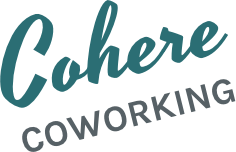
Attending South by Southwest and abandoning the day to day of running Cohere allowed me to get above the daily details and start to notice the larger trends in the global coworking movement.
(Mind you, I’m not talking about number trends like how many spaces there will be, how spaces will scale, how many coworkers, what countries will coworking hit next, etc. There was plenty of that talk at the Coworking Unconference.)
I’m talking about people trends and community and HOW. WE. CONNECT.
I decided to start old school stylie, and looked up the word ‘community’ in the dictionary.
[Latin Lesson. Community: “Roots: etymological. The origin of the word “community” comes from the Latin munus, which means the gift, and cum, which means together, among each other.]
So community literally means to give gifts to and among each other. Which in turn means my community is a group of people who welcome and honor my gifts, and from whom I can reasonably expect to receive gifts in return.
Doesn’t that definition of community just make you want to weep giant tears of JOY? This is why the word community so often follows the word coworking.
But community phenomena isn’t restricted to coworking alone. Humans become connected and form communities for a variety of different reasons:
People
Who doesn’t love an irresistible personality? Whether it’s radical political figures, celebrities drowning in money and diamonds, top athletes, or even outspoken copywriters, humans love to form communities around a dynamic thought-leader. They motivate us, challenge us, criticize us, and better us. Communities centered on a person are some of the strongest and well-connected tribes of all.
Places
Food co-ops, the town bar, churches, parks, and hair salons are all examples of the strong, dedicated communities that can grow around a space. I would suggest that coworking communities fall into this category as well.
I know, I know: the foodies, happy hour heroes, ladies with lovely locks, and coworkers are getting something larger and more intangible from these places, but without a permanent place in which to congregate and participate in the community, would it be as strong? I think not.
Things
What do Drupal, Androids, blogs, Twitter, chili, pancakes, and unicorns all have in common? They are the nexus of small but passionate communities formed around them at Cohere and across the country. Humans aren’t always good at small talk. Although we might have big ideas brewing right under the surface, it often takes a common bond–a thing–, however tiny, to motivate us to share them.
A thing can also be an idea. The idea of independence or sharing or gardening or open source software. I would hazard that common ideas are what brings the global coworking community together and keeps it growing despite a glorious lack of formal organization or a single leader.
(For more brilliance on how communities form, check out this blog post on How People Become Connected).
If I could make a single plea to every researcher, academic, economist and reporter it would be to stop counting us and start communicating with us. Learn more about where, why, and how our communities form, and why they’re so important to us (even when they don’t make us any money).
Don’t try to predict our growth or dissect what it means. Instead, recognize the significance of our existence and the concept around which we choose to congregate. Only then will you have scratched the surface of what we can and will accomplish.
Image Credit: Flickr – Natalie Maynor
